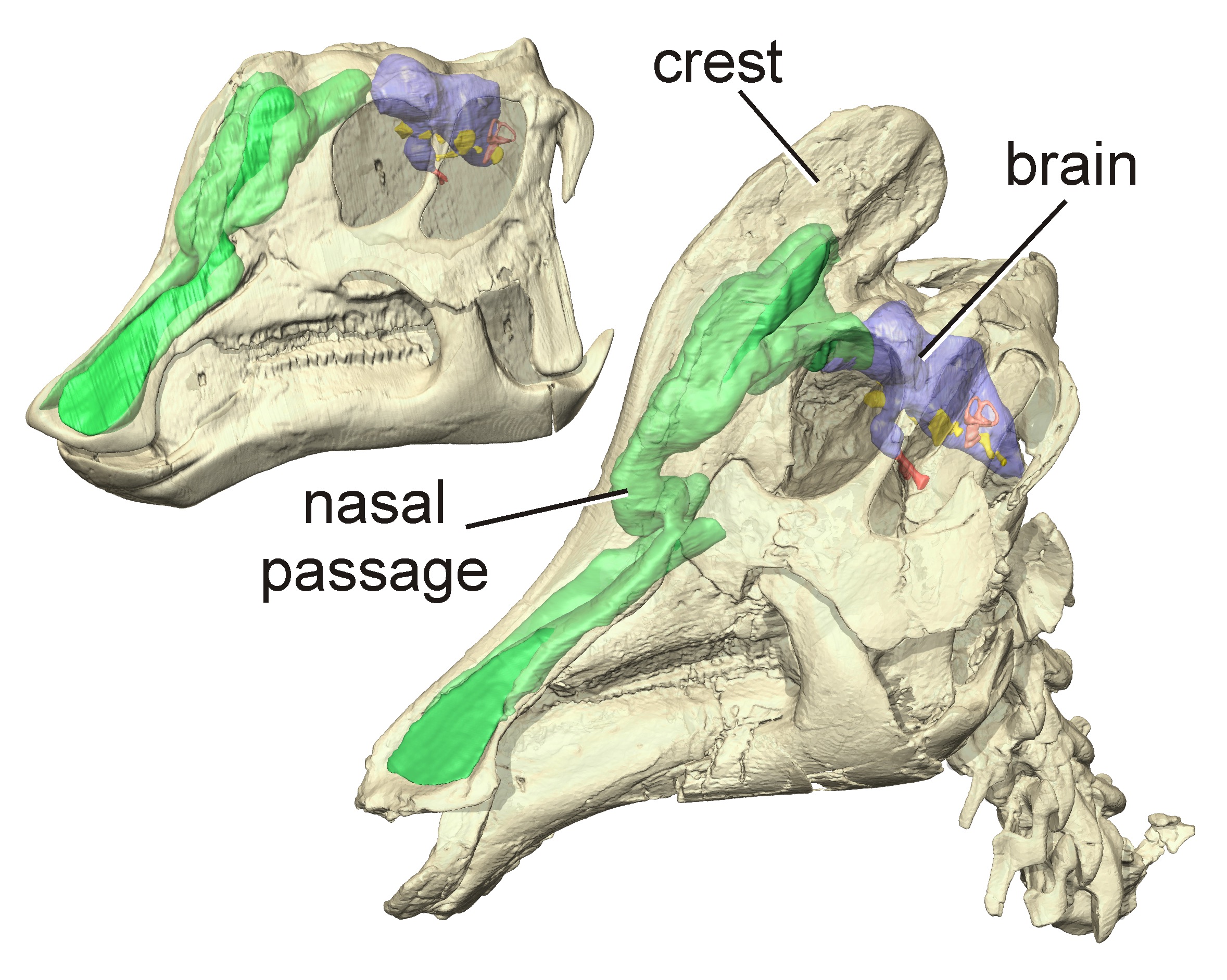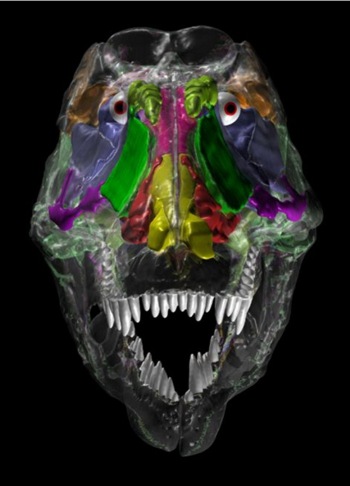Dinosaurs go Machiavellian
Neurophilosophy (scienceblogs.com) grabbed the attention of the 10-years-old in me with a post on the brain of dinosaurs. A team of Ohio osteopaths is trying to reconstruct inner soft tissues in dinosaurs' cranium with "sophisticated imaging techniques" (meaning: don't ask) and speculation informed by comparative anatomy. Apparently, we can study minute fossil details, like the cochlea, with great precision.
Reconstructions of the skull in a juvenile and sub-adult Corythosaurus created using CT scanning. The nasal cavity is highlighted in green, and the brain appears in purple. The complicated nasal passage within the showy crest functioned as resonating chambers during vocalization. The structure of the inner ear and expanded brain confirms that duck-billed dinosaurs were capable of perhaps sophisticated behavioral communication. (Witmer & Ridgely, Ohio University)
The authors used this technique to show that the big crest of Corythosaurus was used to amplify sounds of vocal communication and not for smell (the modelled olfactory lobe, we're told, was very small). As Neurophilosophy writes: "the parts that were involved in higher cognitive function were surprisingly large, and the analysis of the cochlear structure showed that the lambeosaurs were probably sensitive to low frequency sounds".
The authors go on to argue that the beast had complex social intelligence; like vervet monkeys, they might have used their communication skills - "low frequencies bellowing calls - to warn each other of the presence of predators. Corythosaurus cognition, in short, was driven by all sorts of need for Machiavellian intelligence. It's quite entertaining to see a theory invented for primates get hijacked by big lizards in this way.
Now, you expect me to wax a bit critical about the sheer uncertainty of this whole business. Sorry, but a certain 10-years-old won't let me. I mean - Dinosaurs, man!! This is too gorgeous. They even have the brain scan of a T-Rex!!
Can't wait till they do functional MRI.




